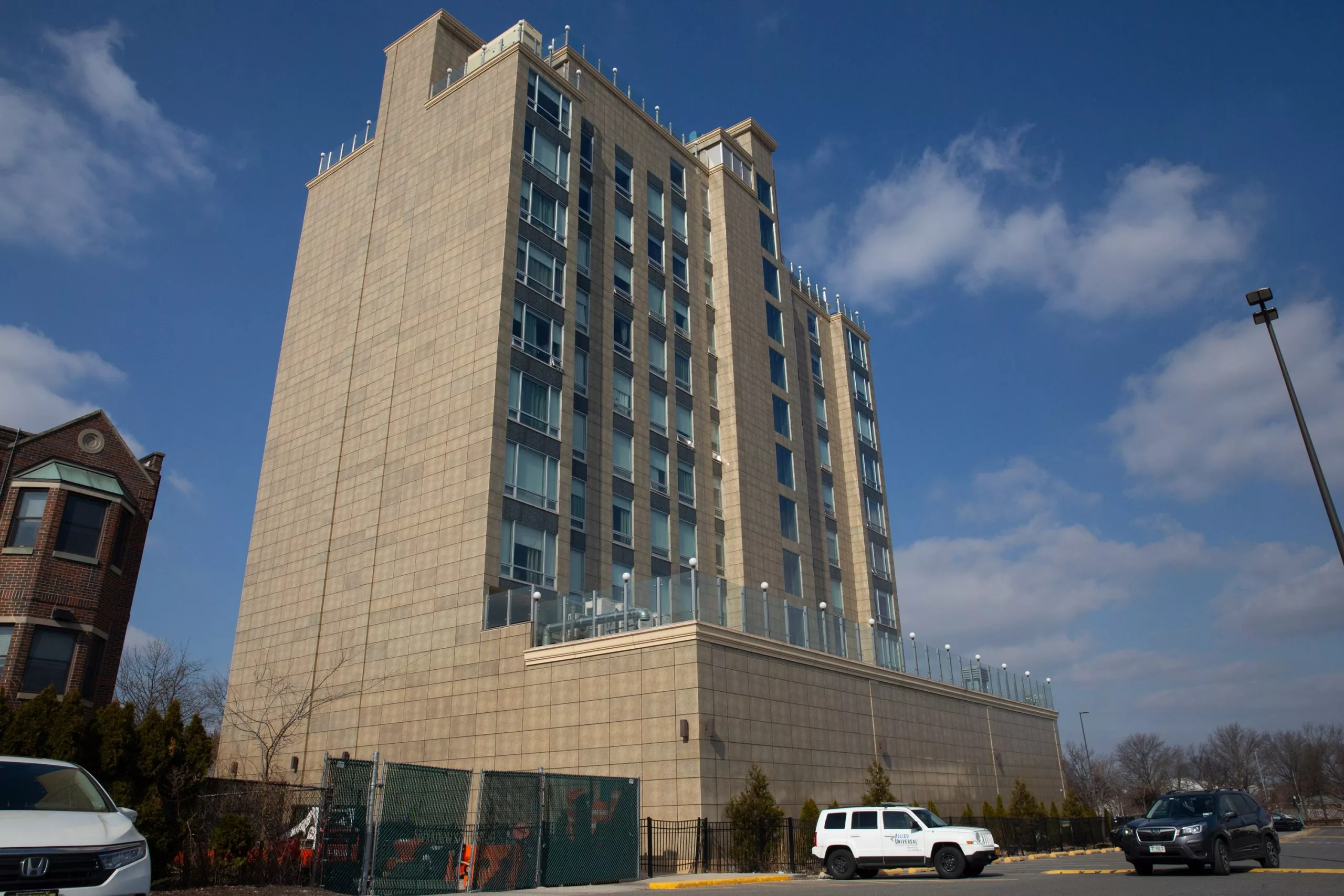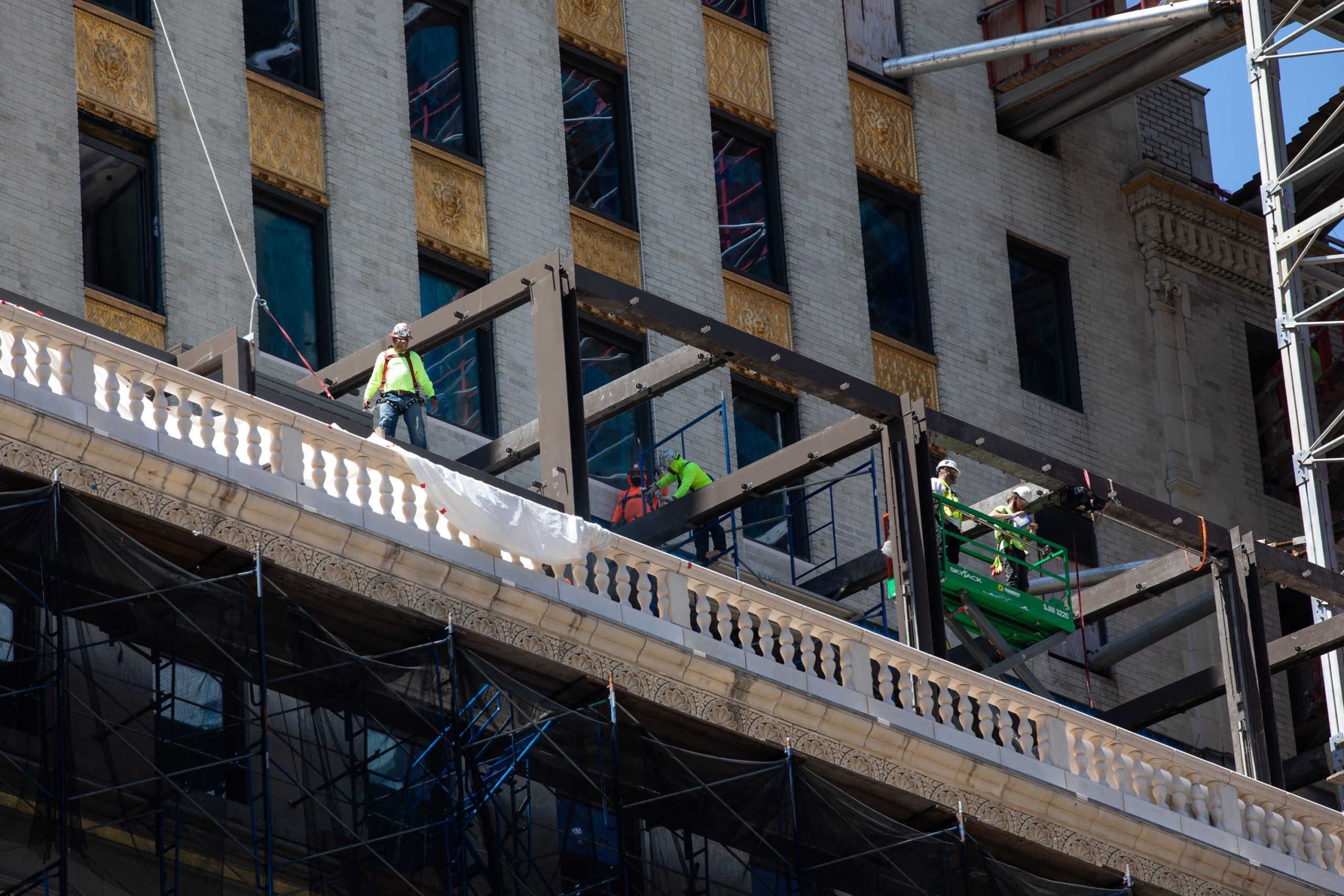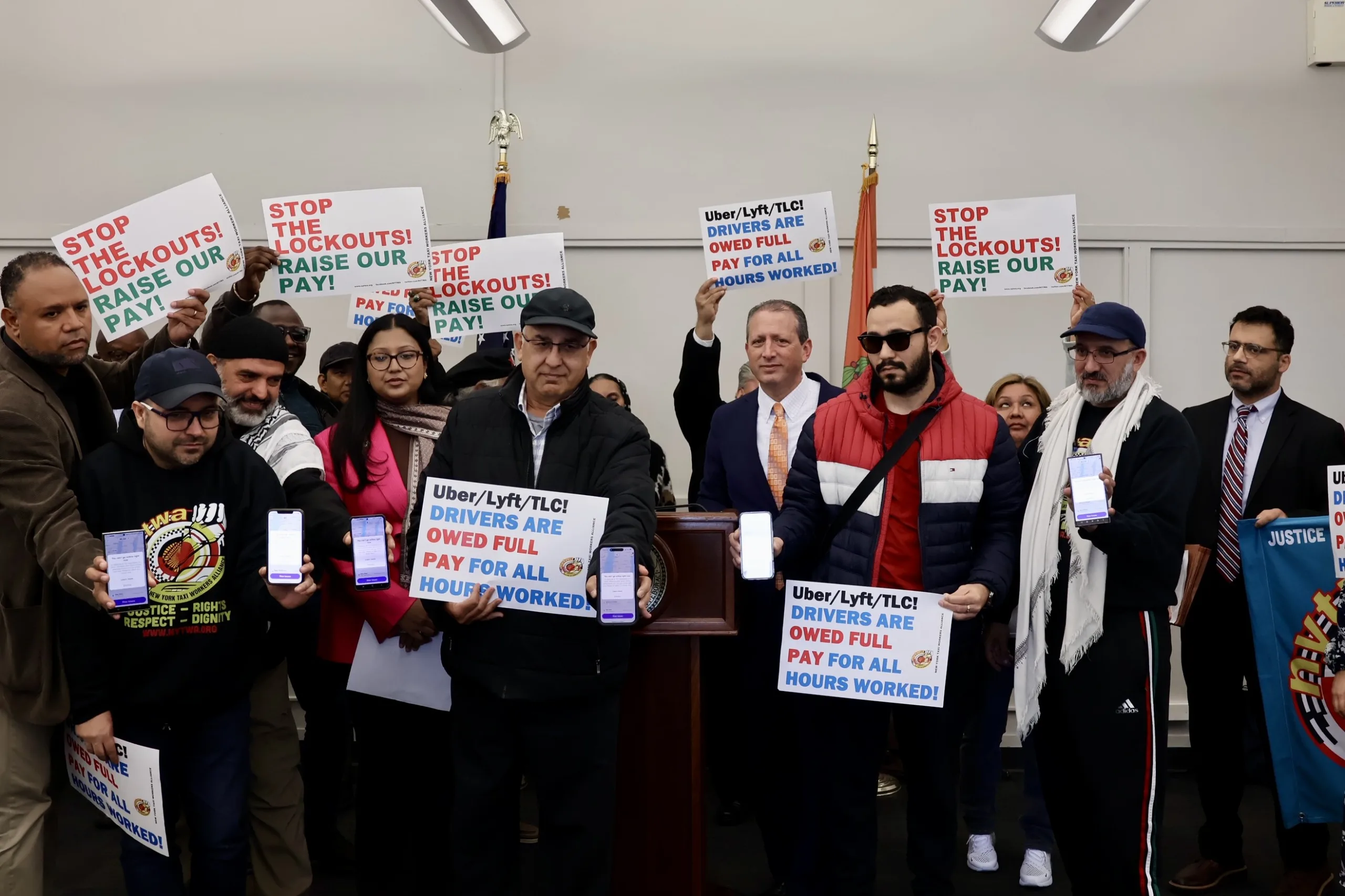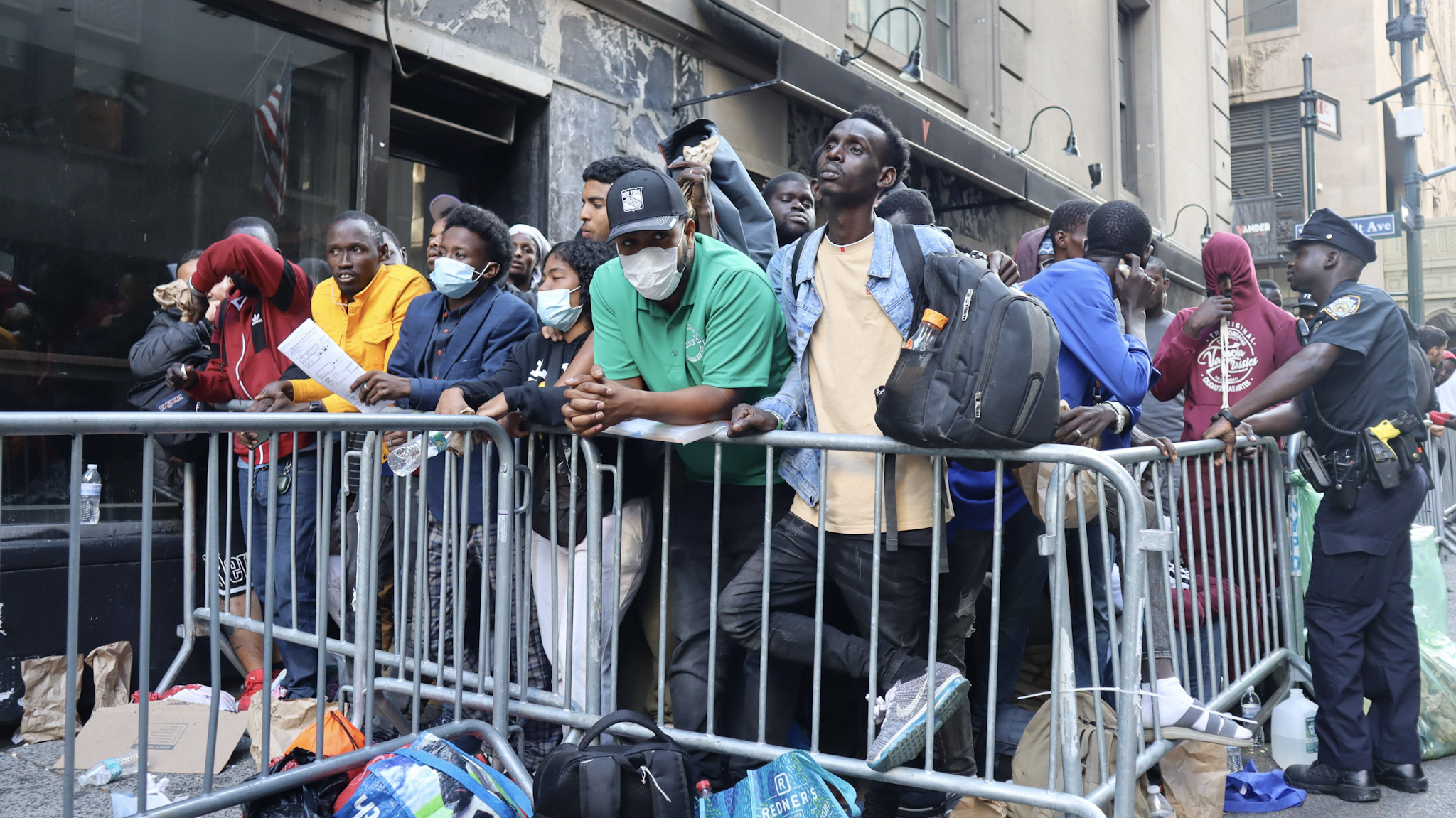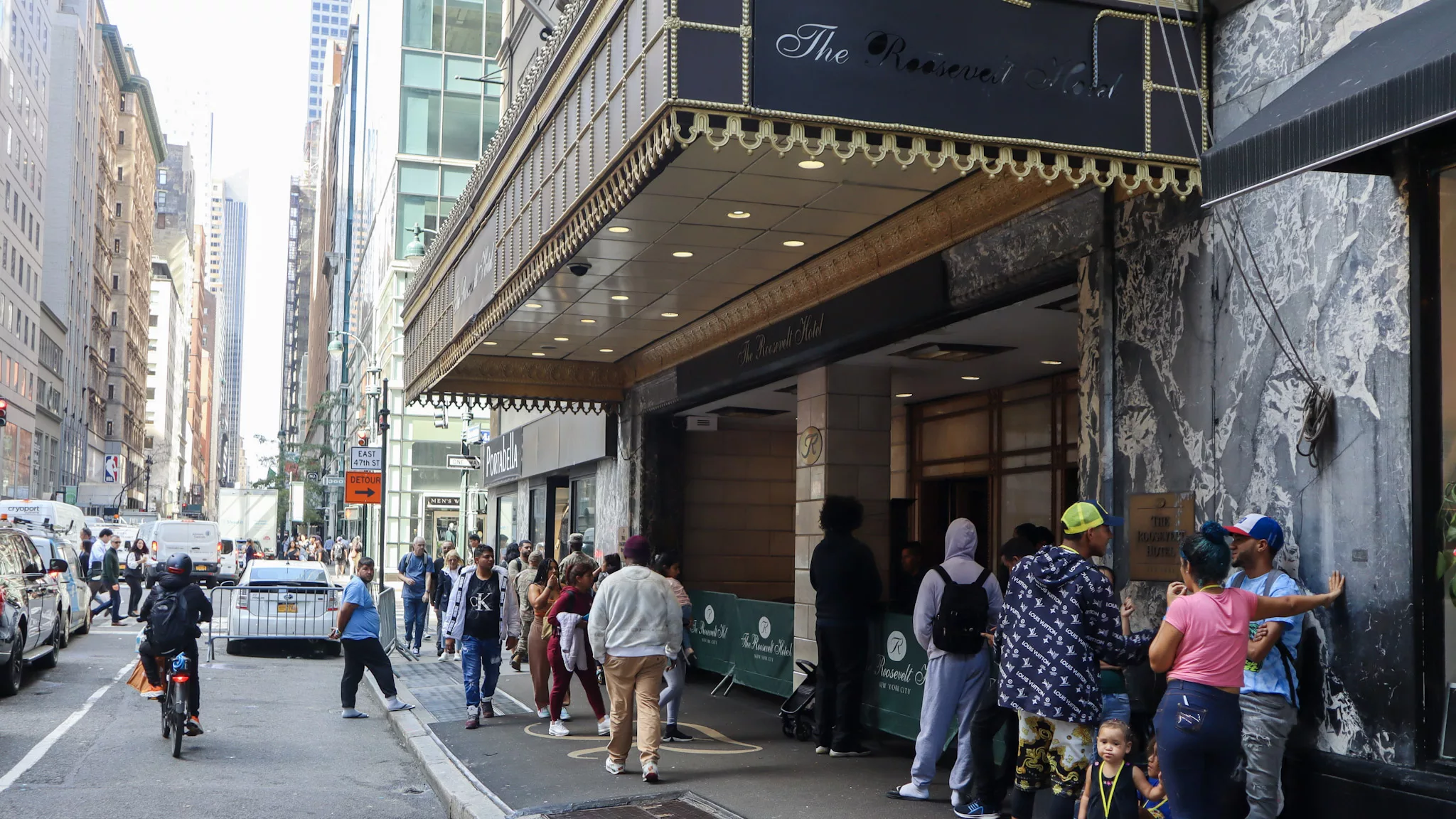New York City Comptroller Scott Stringer sat down for an interview with Documented to talk shop about the impact of immigration on the city’s economy and the effects of federal changes in policies and enforcement.
Asked if the share of wages earned and businesses owned by immigrants would continue to go up, Stringer said, “this Trump election has for the first time in a long time led a lot of us to question whether that will continue to happen… I can’t say for certain that this kind of economic success story will continue unless we change what’s happening in Washington.”
Stringer broke with the mayoral administration on the question of the exclusion of immigrants convicted of one of a list of 170 “serious” crimes not being afforded a free legal defense by the city, saying “at the end of the day, people are innocent until proven guilty, and everyone should have a robust defense. I think that is fundamental to a free society.”
The comptroller also said that the city might have to consider alternative health–delivery methods for the city’s uninsured immigrants to control costs associated with the public hospital system, and urged all elected officials to take more concrete steps to help the city’s immigrant population.
“Every one of us who’s gone to the rallies, who has spoken at press conferences, written op-eds — whatever we’ve all individually done — we also need an action plan,” he said
Read the full interview here.
Good morning and welcome to Early Arrival. I’m Felipe De La Hoz, here to take you through the latest in local and national immigration news and analysis. If you have feedback, suggestions, tips or leads, reach out at felipe.delahoz@documentedny.com or on Twitter.
Apart from Documented, a few sister publications have launch news this week. Sludge, a publication about lobbying and money in politics, launched with us on Monday; Block Club Chicago, a publication covering Chicago’s neighborhoods, launches today; and ZigZag, a podcast about changing the course of capitalism, journalism, and women’s lives, launches Thursday.
Gang database expands 70 percent under de Blasio
Documents released as part of a Freedom of Information request brought by a CUNY Law professor show that the NYPD’s gang database has added suspects at a rate of 342 a month under Mayor Bill de Blasio, or nearly three times the rate of the prior decade. As of February of this year, there were over 42,000 people in the database. The documents reveal some of the criteria that the classification could be based on, which are broad enough that they could apply to almost any young person in the city, whether or not they were involved in any criminal activity. Gang databases have been used around the country by ICE in trying to target young, mostly Central American migrants, and tying them to criminality. The Intercept
LGBT advocates rally over violence against trans women
Advocates with trans health and support groups rallied in Jackson Heights yesterday afternoon to protest an alleged hate incident against an unidentified trans undocumented sex worker last week. The worker apparently declined to report the incident to the police out of fear that she would not be taken seriously by the police, and that the attention would draw the gaze of unwanted authorities, such as ICE. Trans community activists called out the NYPD for failing to properly investigate other incidents against LGBT people in Queens and around the city, and called for greater visibility and support from elected officials and other municipal authorities. Felipe De La Hoz for Documented
New York service providers worry over Sessions asylum decision
In a decision overruling precedent by the Board of Immigration Appeals, Attorney General Jeff Sessions ruled that victims of domestic violence and gang activity are generally ineligible for asylum protections, triggering concern and condemnation from legal assistance and anti-domestic violence groups. Women seeking asylum from abusive partners in countries where the authorities cannot or will not protect them are one of the top groups of people seeking asylum in the United States, with one supervising attorney at Central American Legal Assistance in Brooklyn estimating they formed 30 percent of her cases. Sessions has decided that domestic violence is a private criminal matter instead of a hallmark of a specifically targeted group, meaning victims will have to prove additional persecution to win asylum. WNYC
National
‘Zero tolerance’ wreaks havoc on federal courtrooms
The new Department of Justice Policy to criminally prosecute all individuals caught crossing the southwest border illegally has overwhelmed the federal courtrooms in southern districts, with proceedings happening continuously and somewhat haphazardly late into the day. There are constant delays, and defendants have very little time to confer with their federal public defenders or argue their case before a judge. Most end up taking pleas and getting released on time served, at which point they’re turned over to ICE and put into deportation proceedings. The volume of immigrants being criminally charged also means many are housed where there’s space, which may put defendants in jails that can be dangerously overcrowded and hundreds of miles from their attorneys. The Appeal
New office centered on denaturalization
United States Citizenship and Immigration Services Director L. Francis Cissna said that the agency is in the process of hiring lawyers and immigration officers who will focus on identifying cases of immigrants who made misrepresentations in the process of becoming naturalized citizens, especially those who evaded orders of deportation by using fake identities to apply for status. Once cases were found, they would be referred to the Department of Justice, which could file civil proceedings to strip that person of their citizenship, and potentially file criminal fraud charges. The agency had already determined in 2016 that over 300,000 fingerprint records for deportees or people with criminal convictions had not been uploaded to the Department of Homeland Security’s database, and moved to denaturalize immigrants based on its findings, but this would mark the first time dedicated staff is known to have been hired for this purpose. Civil denaturalization cases have historically been very rare, with only 305 filed since 1990. Associated Press
Boston federal judge argues for limits on ICE detention
In a formal order to release two Brazilian men who had argued that their prolonged detention by ICE was unjustified, Judge Mark Wolf of Boston wrote that federal immigration agents had failed to give the men adequate due process, and that his interpretation of federal law restricted ICE to detaining people in the country unlawfully only within 90 days of a formal removal order. Currently, many immigrants are held for well over 90 days, and are detained months or years after a final removal over has been handed down. The opinion is not precedent-setting or legally binding, but it might have an impact on other similar cases and affect ICE’s arrest practices. Wolf will also soon rule on a class-action lawsuit filed by the ACLU challenging the arrest of immigrants voluntarily attending marriage interviews with U.S. citizen spouses. WBUR
Asylum-seekers continue to be turned away at border
Customs and Border Protection officers have continued to turn migrants away after they’ve already stepped onto U.S. soil at official points of entry, saying that the port is at capacity for processing asylum-seekers and that they should return later. Local activists and legal experts maintain that this practice is illegal, as federal law states that anyone in the United States, including at a port of entry, may request asylum and have it be adjudicated by the corresponding legal process. Nonetheless, agents have been blocking entry, sometimes physically blocking people attempting to cross an entry bridge and edging them back to the Mexican side of the line. KFOX-TV
Flow of refugees to California dries up
With the country on track to accept far less than the already-diminished yearly cap on refugees, the steady arrival of refugees to California has slowed significantly. So far in fiscal year 2018, only about 14,000 refugees have arrived in the United States, dramatically less than the administration’s cap of 45,000 refugees, a number that itself is the lowest cap since refugee limits were first set in 1980. For Californian Mohanad Al-Manasser, who arrived in the country after having worked with the U.S. Army in Iraq, the refugee freezes and other obstacles have meant that his mother and brother are stuck in Oman despite having been approved to join him almost two years ago. San Francisco Chronicle
People are dying because of the Trump administration’s immigration policy, Vox
Detained immigrant alleges sexual assault in Waco jail, Waco Tribune-Herald
ICE Came for a Tennessee Town’s Immigrants. The Town Fought Back, New York Times [in-depth]
Opinion:
- Refugees are no threat to American lives, by Basma Alawee, Florida refugee coordinator for the Florida Immigrant Coalition. Florida Times-Union
- Give Immigrant Entrepreneurs Green Cards, Not ‘Parole’, by Paul Donnelly, former communications director of the U.S. Commission on Immigration Reform. Wall Street Journal
Washington – Ryan heads off immigration vote showdown
House Speaker Paul Ryan was able to avoid the dreaded discharge petition and forced immigration vote that had been threatened by a moderate faction of his own party and scheduled a vote for next week.
The outcome is a victory for Ryan, and a loss for moderate Republicans and the Democrats who were relying on them to force a vote on the long-favored Dream Act and another bipartisan bill that would have provided a path to citizenship for so-called Dreamers in exchange for increased border security funding. The petition fell short by two votes.
Instead, the chamber will likely be voting on a much more draconian immigration bill favored by President Donald Trump and his anti-immigration allies, as well as another compromise bill whose text has yet to be finalized.
The outcome is indicative of the toxicity of the immigration debate in Congress, where vulnerable and moderate Republicans were so frustrated by the inaction that they openly defied their party leadership, and ultimately failed to force its hand. Since the president tried to end the DACA program last September, there’s been little in the way of substantive progress. New York Times


